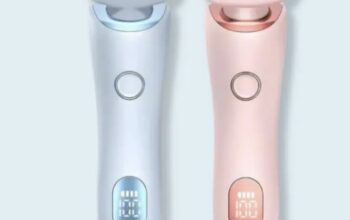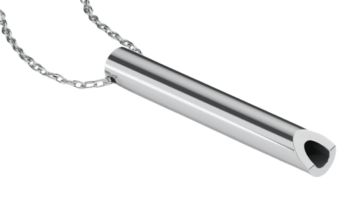For women in the perimenopausal stage, contraception remains a crucial consideration due to the unpredictable nature of ovarian function during this time. Although fertility declines as women approach menopause, it is important for healthcare professionals to remind patients that pregnancy is still possible until 12 months after the final menstrual period. Choosing the right method of contraception during perimenopause can be challenging, as it must balance the need for pregnancy prevention with the management of menopausal symptoms and overall health.
This blog explores the most commonly recommended contraceptive options for perimenopausal women, providing insights for primary care providers to offer tailored guidance.
- Combined Hormonal Contraceptives (CHCs)
Combined hormonal contraceptives (CHCs), such as the pill, patch, and vaginal ring, contain both estrogen and progestogen. These methods are effective in providing contraception, but they also offer additional benefits for perimenopausal women by helping to regulate menstrual cycles and reduce symptoms like heavy bleeding and hot flushes. However, healthcare professionals must carefully assess each patient’s cardiovascular risk factors, as CHCs are not recommended for women over 35 who smoke or have a history of hypertension, thromboembolism, or migraines with aura.
In perimenopausal women, the combined pill may be beneficial as it supports bone health and can ease menopausal symptoms while also providing contraception. Additionally, CHCs reduce the risk of ovarian and endometrial cancers.
- Progestogen-Only Pill (POP)
The progestogen-only pill (POP), also known as the mini-pill, is another option suitable for perimenopausal women, especially those who are unable to use estrogen-containing contraception due to cardiovascular risk or smoking. POP is a reliable and safe contraceptive option that doesn’t contain estrogen, making it an ideal choice for women over 35 who may be at risk of complications from estrogen.
While the POP may cause irregular bleeding, it is generally well-tolerated and effective. Moreover, some newer POPs (such as those containing desogestrel) can inhibit ovulation and offer greater reliability.
- Intrauterine Devices (IUDs)
Both copper IUDs and hormonal IUDs (such as the levonorgestrel-releasing intrauterine system or LNG-IUS) are excellent long-term contraceptive methods suitable for perimenopausal women. The copper IUD is hormone-free and offers reliable contraception for up to 10 years, while the hormonal IUD provides contraception and helps manage heavy menstrual bleeding—a common issue during perimenopause.
The hormonal IUD can reduce endometrial hyperplasia and offer relief from heavy periods, and it is also compatible with hormone replacement therapy (HRT) for managing menopausal symptoms.
Both IUD types can be used until the natural menopause, after which contraception is no longer needed.
- Barrier Methods
Barrier methods, such as condoms and diaphragms, remain a viable contraceptive option for perimenopausal women who may prefer non-hormonal methods or who have contraindications to hormonal contraception. While they are less effective than other methods, barrier methods provide protection from sexually transmitted infections (STIs), which is an important consideration for sexually active women.
Healthcare professionals should ensure that patients are aware of the correct use of these methods, as their effectiveness is user dependent. However, for women who are not in long-term monogamous relationships, barrier methods may be the best option when combined with other forms of contraception.
- Sterilization
For perimenopausal women who are certain they do not want future pregnancies, sterilization (either tubal ligation or vasectomy for their partners) may be considered. Sterilization is a permanent form of contraception that eliminates the need for ongoing contraceptive management. However, healthcare professionals should ensure that patients fully understand the permanence of the procedure and explore all other options before deciding.
- Natural Family Planning
Natural family planning (NFP) involves tracking fertility signs such as basal body temperature and cervical mucus to avoid intercourse during fertile periods. While some women may prefer this hormone-free option, it is not the most reliable method, particularly as perimenopause causes hormonal fluctuations and irregular cycles that make it difficult to accurately predict fertility windows. NFP is not generally recommended for perimenopausal women, but it may be used in conjunction with other methods for added security.
Conclusion
For women in perimenopause, contraception remains important until they are confirmed to be postmenopausal (12 months without a period). Combined hormonal contraceptives, progestogen-only methods, IUDs, and barrier methods are all suitable options depending on the patient’s health status and personal preferences. Healthcare professionals should consider individual risk factors, including cardiovascular health, lifestyle, and the presence of menopausal symptoms, to provide tailored contraceptive advice.
References:
- Faculty of Sexual & Reproductive Healthcare (FSRH) (2023) Contraception for women over 40 years. Available at: www.fsrh.org [Accessed 2 October 2024].
- NHS England (2023) Contraception guide. Available at: www.nhs.uk [Accessed 2 October 2024].
For a deeper dive into menopause and its management, explore the articles Navigating Menopause: Exploring Herbal Supplements and Alternative Therapies and Premature Menopause: Causes and Diagnosis. These resources provide valuable insights into managing menopausal symptoms and supporting women through this transitional phase.




